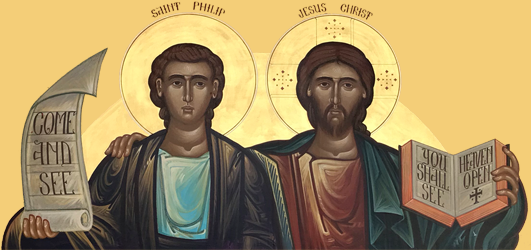“On the Day of Atonement you shall make the trumpet to sound throughout all your land. Then you shall sanctify the fiftieth year, and proclaim remission throughout the land to all its inhabitants.” (OSB)
Last week we made passing mention of the Jubilee Year as an important feature of how God forms the economic life of His people. On top of the Sabbatical Year—not cultivating the Land every 7th year—the people of God were to observe a special Year after every “seventh 7,” that is, after every 49 years. This is the Jubilee: the 50th Year after seven times seven, which is also the 8th Year of the last seven. On this Year, there was to be a “forgiveness/remission” of debts as the people entered the “new age” of the next Jubilee cycle.
It is hard to overstate the importance of the Jubilee for later developments in Israel and the Church’s understanding of all of history. We see this in 2 Chron 36:21 in connection with Israel’s 70-year exile in Babylon as predicted by Jeremiah (25:11-12; 36:10; Dan 9:2 OSB). After all of Israel’s abominations, the Land must have its 70-year Sabbath rest, and the Jubilee is God’s proclamation of forgiveness of sins and the return of the exiles.
This pattern can be seen clearly in the prophecies of Daniel as well, though the interpretation remains deeply obscure. In Daniel 9:20-27, Daniel prophesies of a period of 70 sevens (weeks) of years, that is, 490 years. The Fathers do indeed see in this, in connection with the Christ’s own Daniel-like prophecy (Matt 24), a prophecy of periods of history, from the decree to rebuild the Temple (ca. 458 BC) culminating in the Crucifixion (ca. AD 33), when “the Anointed One” is “put to death” (Dan 9:26), which itself anticipates the destruction of the Jerusalem Temple in AD 70.
This destruction signifies the complete transfer of “the Temple” and its sacrifices into their fulfilled, eternal realities in Christ and the worship of the Church “in Spirit and truth.” Jesus’ self-offering as the eternal Passover and Day of Atonement sacrifice (Heb 9-10) has ushered in the eternal Jubilee (the 50th/8th Year), whence we have forgiveness of debts & sins, return from exile (resurrection), and inheritance of the eternal Kingdom (Matt 26:28; Col 1:14)!
Other Jews around the time of Christ were anticipating this very thing. One celebrated text from the Dead Sea Scrolls, 11QMelchizedek, weaves a fascinating web of Old Testament texts to present the hope for a heavenly priest-king Melchizedek who
will proclaim to them the jubilee, thereby releasing th[em from the debt of a]ll their sins. [He shall pro]claim this decree in the fir[s]t [wee]k of the jubilee period that foll[ows nine j]ubilee periods. Then the "D[ay of Atone]ment" shall follow af[ter] the [te]nth Ju]bilee period, when he shall atone for all the Sons of [Light] ... For 'this is the time decreed for "the year of Melchiz[edek]’s favor" (cf. Isa. 61:2), [and] by his might he w[i]ll judge God's holy ones and so establish a righteous ki[n]gdom, as it is written about him in the Songs of David, "God has taken his place in the council of God; in the midst of the gods he holds judgment" (Ps 81:1 LXX).
When Jesus appears in the synagogue in Nazareth, in Luke 4, and He reads from the Isaiah scroll, He is proclaiming the Jubilee remission:
The Spirit of the LORD is upon Me, Because He has anointed Me To preach the gospel to the poor; He has sent Me to heal the brokenhearted, To proclaim remission to the captives And recovery of sight to the blind, To set at liberty those who are oppressed; To proclaim the acceptable year of the LORD. (Lk 4:18-19; Isa 61:1-2)
Because “Our Father” has remitted our debts, as we pray, this is why we are to forgive one another’s debts (Matt 6:12), bearing with one another in love (Eph 4:12, 32; Col 3:13), fulfilling the Jubilee in our forgiving 70 times 7 (Matt 18:22).

